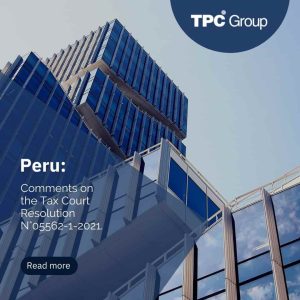Introduction
In a recent ruling issued by the Supreme Court of Justice of the Republic, a cassation case filed by Monterrico Sociedad Anónima, a company engaged in the exploration and exploitation of hydrocarbons, was resolved. The conflict focused on the correct application of the deduction of financial expenses and the valuation of fixed assets, entailing detailed considerations of the principle of causality in the expense deduction to determine the net income of the third category.
Background and Description of the Problem
Monterrico Sociedad Anónima faced tax objections from the SUNAT (Superintendencia Nacional de Aduanas y de Administración Tributaria – National Superintendence of Customs and Tax Administration), mainly related to the deduction of financial expenses assigned to loans employed to pay dividends (non-taxable income) and the classification of certain fixed assets. The company argued that these deductions were essential for its production transactions, and the SUNAT argued that the expenses did not comply with the requirements to be considered deductible under the principle of causality established in Article 37 of the Income Tax Law.
Development of the Conflict
The conflict ascended through several administrative and legal instances. Monterrico’s initial lawsuit claimed the nullity of several administrative resolutions denying the deduction of certain expenses and the depreciation of assets. During the process, the criteria for the expense deduction and the classification of assets, as well as the application of delinquency interest for the delay in the resolution of the challenging appeals by the tax authority, were intensely debated.
Judicial Resolution and Applied Principles
The Supreme Court’s resolution highlighted several key points:
- Principle of Causality: In order to deduct an expense, it must be directly related to the generation of taxable income. In the Monterrico case, part of the financial expenses was not deductible because the associated loans were also employed to pay dividends, which is non-taxable income.
- Classification of Fixed Assets: Certain assets were analyzed to determine whether they were from surface or sub-surface assets, affecting their depreciation treatment. The Court confirmed that the engines in question should be addressed as surface assets and, therefore, were not deductible under the applicable tax legislation.
- Delinquency Interest: The Court addressed the accrual of delinquency interest due to the delay of the SUNAT and the Tax Court to resolve the appeals, concluding that such delay violated the principle of reasonableness and effective judicial protection, ordering the elimination of the delinquency interest generated by over-time.
Conclusion
This case exemplifies the complexity of tax legislation for large corporate transactions and emphasizes careful tax and accounting planning. The decision highlights the need for companies to ensure that all deductions strictly comply with the principles of causality and legality to avoid eventual conflicts with the tax authorities. In addition, it highlights the responsibility of administrative entities to resolve disputes within a reasonable period so as not to prejudice taxpayers.




